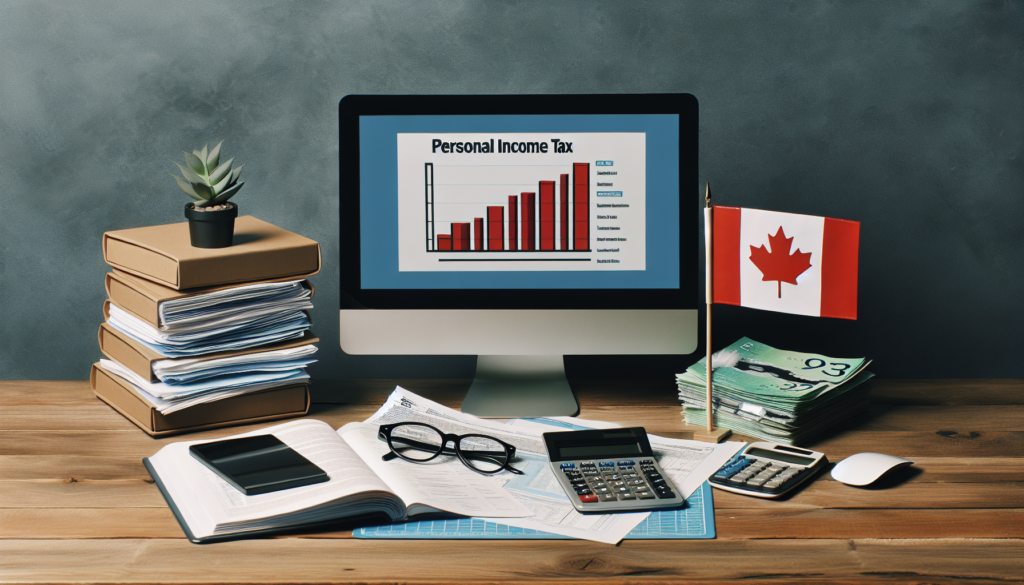Property investors and owners face the most important challenges in real estate tax management as tax regulations grow complex each year. CPAs who specialize in real estate are a great way to get expertise to guide through these intricate tax requirements. Their specialized knowledge helps both seasoned investors and new property owners to optimize their tax positions.
A CPA’s value goes way beyond the reach and influence of simple tax preparation and compliance. These professionals deliver complete services that include tax planning, entity structuring, expense categorization, and expert guidance for real estate transactions. Their deep knowledge of tax laws and skill to spot opportunities for tax savings and deductions makes them vital partners in real estate success.
Expertise in Real Estate Tax Laws and Regulations
Professional tax expertise is the life-blood of successful real estate investment management. CPAs who specialize in real estate taxation have complete knowledge that goes way beyond basic accounting principles. Their expertise includes intricate tax codes, regulations and strategic planning methods.
Understanding complex tax codes
Real estate taxation has multiple complex layers that range from property rules to ownership structures. Tax legislation and administration grows more complex each year. Tax professionals need deep expertise to handle these challenges effectively. CPAs must learn about rental income types, capital gains rules, and expense deduction details. The complexity shows up in several key areas:
- How properties are owned (personal, corporate, partnership, trust)
- What Capital Cost Allowance (CCA) means for taxes
- Ways to classify and report rental income
- Rules about expense deductions and their timing
- Managing taxes for multiple properties
Staying updated on tax law changes
Tax laws change frequently and need constant watchfulness to stay current. Professional CPAs at BOMCAS Canada stay up-to-date through rigorous education and development programs. They keep track of the most important changes in federal, provincial, and municipal tax regulations that affect real estate investors. The monitoring process has updates for:
- Underused Housing Tax (UHT) legislation
- GST/HST residential rental property rebates
- Capital gains taxation modifications
- Property-specific tax incentives
- Real estate investment trust (REIT) regulations
Applying real estate-specific tax strategies
Expert CPAs create and implement custom tax strategies that match their client’s real estate portfolio goals. They utilize their knowledge of tax optimization techniques to maximize benefits and maintain compliance. This expertise has strategic planning for:
Knowing how to spot and apply the right tax strategies needs more than understanding current regulations. CPAs must anticipate potential risks of various investment choices. They structure transactions to enhance tax efficiency while following all relevant regulations.
Tax advisors give vital guidance about entity structuring choices. They help investors select between personal ownership, corporate structures, or trust arrangements based on specific situations and goals. Their expertise helps real estate investors make smart decisions that support both immediate needs and long-term financial objectives.
Maximizing Tax Deductions and Credits
Tax management strategies substantially affect real estate investment profits. Professional CPAs like BOMCAS Canada serve a vital role. They identify and maximize tax benefits while navigating complex regulations effectively.
Identifying all eligible deductions
Real estate investors miss out on many legitimate tax deductions. A qualified CPA will help you track and document these eligible expenses:
- Property management and maintenance costs
- Insurance premiums and property taxes
- Professional service fees
- Travel expenses tied to property management
- Home office expenses from real estate activities
- Marketing and advertising costs
Leveraging real estate tax credits
Tax credits directly reduce tax liability, which makes them valuable assets for real estate investors. Professional tax advisors keep themselves updated about credits like the Home Accessibility Tax Credit and the GST/HST New Housing Rebate. These experts guide investors through qualification requirements and application processes to maximize benefits from these programs effectively.
Optimizing depreciation strategies
Real estate investment’s most powerful tax advantage comes from depreciation. Expert CPAs use advanced depreciation strategies through multiple methods:
| Depreciation Method | Key Benefits | Best Application |
|---|---|---|
| Cost Segregation | Accelerated depreciation for specific components | Large properties with significant improvements |
| Modified Accelerated Cost Recovery | Front-loaded deductions | Personal property within rental units |
| Straight-line Depreciation | Consistent annual deductions | Building structures |
Strategic depreciation planning requires detailed analysis of property components and their depreciation schedules. Expert CPAs know how to enhance these schedules while following tax regulations. They spot opportunities for faster depreciation through cost segregation studies that boost cash flow during the property’s early ownership years.
Real estate CPAs excel at spotting the difference between capital improvements and repairs. This expertise helps ensure proper categorization for the best tax treatment. Their guidance helps property investors make smart decisions about expensing or capitalizing various costs based on immediate tax impact and long-term investment goals.
Professional tax advisors create substantial value for real estate investors. They document eligible expenses meticulously and apply complex depreciation strategies effectively. This comprehensive approach helps maximize deductions while staying compliant with tax laws, which leads to better investment returns.
Strategic Tax Planning and Entity Structuring
Smart entity structuring paired with thoughtful tax planning creates the foundations of successful real estate investment management. Professional CPAs at BOMCAS Canada help investors make significant decisions that affect their financial success and streamline processes for the long term.
Choosing the right business structure
Your choice of business structure impacts your tax treatment and liability protection by a lot. Each type of entity comes with its own set of advantages:
| Entity Type | Tax Treatment | Key Benefits |
|---|---|---|
| LLC | Pass-through | Liability protection, flexibility |
| S Corporation | Pass-through | Employment tax savings |
| Partnership | Pass-through | Multiple owner benefits |
| Three-tier Corporate | Tiered taxation | Enhanced asset protection |
Professional tax advisors review your income levels, property count, and long-term goals to recommend the best structures for real estate investments.
Long-term tax planning for real estate investors
Tax planning goes far beyond yearly tax returns to cover complete long-term goals. CPAs create custom strategies that line up with their clients’ growth targets and maximize tax efficiency. The plan has:
- Implementation of opportunity zone investments
- Structured 1031 exchange planning
- Estate tax planning and succession strategies
- Capital gains management strategies
- Real Estate Investment Trust (REIT) evaluation
Minimizing overall tax liability
Smart CPAs use advanced strategies to lower taxes while staying compliant. They put tax-advantaged approaches to work through cost segregation studies and smart entity structuring. Real estate investors with multiple properties benefit from a three-tier corporate structure that offers substantial advantages:
- Holding company tax benefits
- Property management company operations
- Real estate company asset protection
Firms like BOMCAS Canada prove especially helpful when you need to execute complex strategies. These include splitting income between family members or using holding companies to manage properties tax-efficiently. You’ll need to think over both the immediate tax effects and your long-term investment goals.
The right timing of property purchases and sales, paired with proper entity structuring, will optimize your tax situation. Professional CPAs run different scenarios to find the best timing and structure. They look at market conditions, tax law updates, and each investor’s unique situation.
CPAs guide real estate investors to build tax-smart structures. These structures support day-to-day operations and help build wealth over time. Their knowledge helps match investment choices with tax savings while following all the latest rules.
Assistance with Complex Real Estate Transactions
Complex real estate transactions demand specialized expertise to guide through their intricate financial and tax implications. Professional CPAs are a great way to get direction in these complex matters. They ensure optimal tax treatment and help you meet all regulatory requirements.
Guidance on 1031 exchanges
Section 1031 exchanges stand as a powerful tax-deferral strategy that real estate investors can leverage. BOMCAS Canada’s professional CPAs help investors navigate these complex transactions with their specific requirements and timelines. Here’s what you need to know about 1031 exchanges:
| Aspect | Benefit | Requirement |
|---|---|---|
| Tax Deferral | Complete deferral of capital gains | Like-kind property exchange |
| Timeline | Flexible property identification | 45-day identification period |
| Investment Growth | Continuous tax-deferred appreciation | 180-day purchase window |
| Property Type | Broad exchange options | Investment/business purpose only |
Handling multi-property portfolios
Tax optimization strategies and careful financial planning play vital roles in managing multiple properties. Professional CPAs apply complete approaches to portfolio management that include:
- Strategic timing of acquisitions and dispositions
- Coordinated depreciation schedules for all properties
- Cross-collateralization considerations
- Portfolio-wide expense tracking and categorization
- Combined financial reporting strategies
BOMCAS Canada’s expertise becomes especially valuable with complex tax implications of multi-property portfolios. Their team offers strategic guidance on property holding periods, improvement timing, and disposition sequencing to maximize tax efficiency.
Understanding Partnership and Syndication Deals
Real estate transactions with partnership and syndication structures come with their own set of challenges. CPAs help investors handle these complex arrangements and ensure proper tax treatment and compliance. These structures need a thorough analysis of:
Partnership Considerations:
- General vs. limited partnership implications
- Partner contribution valuations
- Income and loss allocation strategies
- Distribution waterfall structures
- Tax filing requirements
Syndication Specifics: CPAs play a vital role in structuring syndication deals that maximize tax benefits for all parties. Their expertise covers:
- Sponsor and investor tax treatment differentiation
- Passive activity loss rules
- Self-employment tax considerations
- K-1 reporting requirements
- Capital account maintenance
CPAs know the intricacies of partnership agreements and syndication structures. They help clients direct complex ownership arrangements while maximizing tax advantages. Their knowledge helps all parties grasp their tax obligations and benefits while meeting regulatory requirements.
These transactions need precise timing, structure, and tax planning. CPAs offer significant guidance from the ground up through each stage. Their expertise will give clients the best possible outcomes for their investment goals.
Audit Support and Representation
Professional representation is a vital component for real estate investors and property owners navigating the complex tax environment. Qualified CPAs are a great way to get protection and peace of mind when tax authorities scrutinize your records. Their expertise guides clients safely through the entire audit process.
Preparing accurate financial records
Professional CPAs stress that you need complete financial documentation ready before any audit notice arrives. A strong financial record-keeping system has:
| Documentation Type | Purpose | Retention Period |
|---|---|---|
| Transaction Records | Support income/expense claims | 6 years minimum |
| Asset Documentation | Verify property values/basis | Property lifetime |
| Financial Statements | Demonstrate performance | 6-7 years |
| Bank Statements | Verify cash flows | 6 years minimum |
| Contracts/Agreements | Support business relationships | Term + 6 years |
Strategic record management requires reliable accounting software and detailed transaction logs. BOMCAS Canada suggests that you set up strong internal controls to ensure proper authorization and documentation of all transactions. This reduces audit-related stress by a lot.
Representing clients during IRS audits
CPAs skillfully represent their clients during tax audits. They manage all communications with authorities and protect their client’s interests effectively. The audit representation process includes several key steps:
- Original audit notice evaluation and response planning
- Document preparation and systematic organization
- Tax authority communication oversight
- Complex tax regulation interpretation expertise
- Financial information presentation strategy
- Direct guidance throughout audit proceedings
Professional representation keeps audit scope focused appropriately. CPAs excel at presenting information that can limit unnecessary audit expansion while building strong professional relationships with auditors.
Resolving tax disputes and negotiations
Tax disagreements during audits require professional CPAs to use their expertise in dispute resolution and negotiation. They follow this approach:
- Technical Analysis
- Legal position evaluation
- Review of similar cases
- Documentation verification
- Strategic Resolution
- Settlement proposal creation
- Dispute resolution alternatives
- Appeals management
- Compliance Assurance
- Corrective action plans
- Future compliance strategies
- Risk reduction methods
BOMCAS Canada’s expertise proves valuable in complex negotiations. Their deep knowledge of real estate tax laws helps achieve favorable outcomes. The team looks for ways to compromise while protecting their client’s interests throughout the resolution process.
Professional tax advisors know that successful audit outcomes depend on quality representation and strong documentation. They assist clients to keep well-organized records that show tax compliance. This approach helps build stronger positions during negotiations.
Professional representation brings value beyond just handling audits. CPAs use audit experiences to set up better financial reporting systems and internal controls. This reduces future complications. Their expertise helps real estate investors create strong documentation practices that support daily operations and potential audits.
Professional CPAs help real estate investors handle tax audits smoothly with minimal business disruption through expert planning and representation. Their complete approach to audit support gives clients confidence in managing tax authority reviews.
Time and Cost Savings for Real Estate Investors
Professional CPA services provide substantial returns to real estate investors. These services improve operational efficiency and lower costs significantly. BOMCAS Canada and similar firms help investors navigate complex tax management smoothly, which creates both immediate and lasting financial advantages.
Reducing time spent on tax preparation
Professional CPAs use advanced accounting software and time-tested processes to cut down tax preparation time by a lot. Their systematic approach has these steps:
| Task | Time Savings | Business Impact |
|---|---|---|
| Documentation Organization | 70% reduction | Improved efficiency |
| Expense Categorization | 60% reduction | Improved accuracy |
| Financial Reporting | 50% reduction | Better decision-making |
| Tax Filing | 80% reduction | Timely compliance |
| Record Maintenance | 65% reduction | Reduced stress |
Technology integration with platforms like QuickBooks Online makes shared work possible in real-time between investors and their CPAs. This cuts down manual data entry needs. Modern technology makes the tax preparation process smoother while keeping accuracy and compliance intact.
How to avoid tax mistakes that get pricey
CPAs set up reliable systems that prevent expensive mistakes and help you follow tax regulations correctly. Their expertise helps real estate investors stay clear of common mistakes that lead to penalties and audit issues. These preventive steps include:
- Correct expense tracking and documentation
- Tax document filing on time
- Smart tax strategy execution
- Regular money tracking checks
- Following latest tax law updates
Professional guidance offers more than just error prevention. Strategic tax planning by qualified CPAs uncovers legitimate ways to save on taxes while following all regulatory rules. Their deep knowledge of real estate taxation helps investors claim maximum deductions without raising audit concerns.
Allowing focus on core real estate activities
Real estate investors who work with professional CPAs can focus on essential business operations that stimulate profitability. Working with experts to handle tax management brings several key advantages:
- Better Business Focus
- Time to analyze property acquisitions
- Strong relationships with tenants
- Market research capabilities
- Property management oversight
- Investment strategy growth
- Expert Risk Management
- Tax compliance monitoring
- Financial health checks
- Smart tax planning changes
- Entity structure improvements
- Latest regulatory updates
Fixed fee billing arrangements from firms like BOMCAS Canada give you predictable costs without surprises. You can budget your professional services effectively and get expert tax advice. The service package has:
- Yearly tax planning meetings
- Regular money reviews
- Tax return work
- Expert advice
- Compliance checks
Professional accounting systems lay strong foundations for growth. CPAs keep detailed records that help with daily operations and potential audits. This takes the paperwork burden off real estate investors. Your financial documents stay organized and ready when needed.
Expert CPAs share valuable knowledge about market trends and investment opportunities from their work with many clients. Their viewpoint helps you make smart choices about:
- When to buy properties
- How to structure investments
- Ways to spread risk
- Planning your exit
- Setting up succession plans
Qualified CPAs do more than just prepare taxes – they manage your entire financial picture. Their expertise lets real estate investors focus on making money while staying tax-compliant. This professional partnership brings both quick wins and long-term benefits to your real estate investments.
Conclusion
Professional CPAs add significant value to real estate tax management in many ways. Their expertise covers tax law navigation, strategic planning, deduction optimization, and audit representation. These complete services help real estate investors achieve the best tax positions while they comply with changing regulations. CPAs use their technical knowledge and hands-on experience to turn complex tax challenges into strategic advantages for their clients.
Real estate investors who work with qualified tax professionals set themselves up for future success. They improve efficiency and reduce their risk exposure significantly. BOMCAS Canada stands out as one of the best Professional Tax Accountants for Real Estate Tax in Canada. The firm shows the high-level expertise needed to handle today’s complex real estate tax landscape. Professional CPA services are a smart investment that pays off through better tax positions and protected assets. This allows investors to concentrate on growing their core business.
FAQs
- What are the benefits of becoming a CPA?
- Becoming a CPA offers significant flexibility and versatility in career options. CPAs can work in various industries, specialize in specific areas, and are recognized globally. This recognition opens up diverse opportunities, including roles in climate accounting.
- How do CPAs differ from other accounting professionals?
- CPAs are held to higher standards and are recognized by the government as experts in accounting. This recognition qualifies them to perform tasks that other accountants may not be authorized to do, such as preparing audited financial statements.
- Where are the best cities for CPAs to work in the United States?
- The top cities for CPAs in the United States include Washington D.C., Chicago, Houston, Atlanta, Dallas-Fort Worth, Boston, Philadelphia, and Denver. These cities offer high demand for accountants and typically offer higher salaries.


![🇨🇦 Discover Canada: The Ultimate Citizenship Guide [Full Audio Book]](https://jahplay.com/wp-content/uploads/2024/04/Discover-Canada-The-Ultimate-Canadian-Citizenship-Guide-1-1024x585.png)








